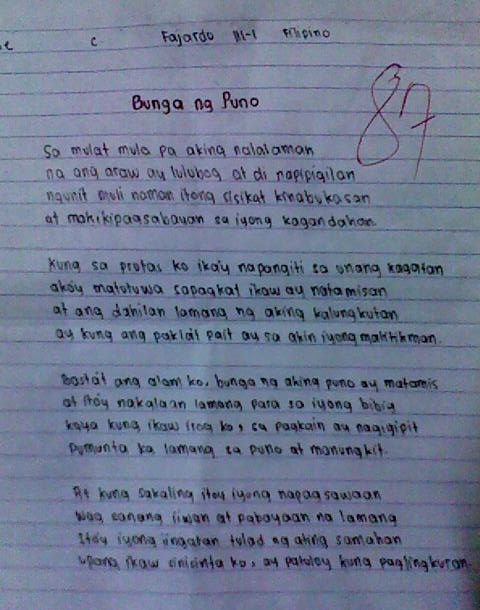In the Philippines, a country renowned for its breathtaking natural beauty and rich cultural heritage, there exists a deep-rooted connection between people and the environment. This connection is profoundly expressed through various art forms, one of which holds a special place in the Filipino heart: poetry, or "tula" in Tagalog. For generations, Filipinos have woven intricate verses that capture the essence of their surroundings, from the lush rice terraces to the vibrant coral reefs. Today, this poetic tradition finds renewed purpose in the face of growing environmental challenges. Filipino poets are increasingly using their craft to raise awareness about the importance of environmental protection, urging their fellow citizens to become stewards of their natural inheritance.
The use of tula to champion environmental causes is not a recent phenomenon. It has been an integral part of Filipino culture for centuries. Traditional folk songs often featured themes of nature, emphasizing the interconnectedness between humans and the environment. These songs served as both entertainment and a means of transmitting ecological knowledge across generations.
The importance of tula in promoting environmental awareness cannot be overstated. In a country where oral traditions hold immense weight, poetry possesses a unique ability to resonate with people from all walks of life. A well-crafted verse can evoke emotions, spark conversations, and inspire action in ways that other forms of communication often struggle to achieve. Moreover, tula provides a platform for marginalized voices to be heard, amplifying the concerns of communities directly impacted by environmental degradation.
However, despite its long history and enduring power, the use of tula for environmental advocacy faces challenges in contemporary society. The rise of digital media, while offering new avenues for artistic expression, has also led to a decline in traditional forms of storytelling. Furthermore, the urgency of environmental issues often clashes with the perceived slow pace of cultural change. Addressing these challenges requires innovative approaches that bridge the gap between traditional art forms and modern communication methods.
One of the most compelling aspects of tula for environmental advocacy is its versatility. It can take on various forms, from traditional rhyming schemes to free verse, spoken word poetry, and even song lyrics. This adaptability allows poets to experiment with different approaches, tailoring their message to specific audiences and platforms. For instance, some poets collaborate with environmental organizations to create educational campaigns using poetry as a tool for community engagement. Others use social media to share their work, reaching a wider audience and sparking online discussions about environmental issues.
The beauty of tula lies in its ability to transcend mere words on a page. It has the power to move people, to make them think critically about their relationship with the environment, and ultimately, to inspire them to take action. As the Philippines faces mounting environmental challenges, the role of tula in advocating for a sustainable future has never been more crucial.
Advantages and Disadvantages of Using Tula for Environmental Advocacy
| Advantages | Disadvantages |
|---|---|
| Highly relatable and engaging for Filipinos | May not reach a global audience as effectively |
| Rooted in cultural tradition, lending it credibility | Can be challenging to measure its direct impact |
| Provides a platform for diverse voices and perspectives | Requires ongoing support and innovation to remain relevant |
While there are challenges to overcome, the potential of tula to inspire positive environmental change is undeniable. By supporting Filipino poets and promoting environmental education through art, we can harness the power of words to create a more sustainable and resilient future for the Philippines.
tula para sa pangangalaga ng kalikasan - Trees By Bike
tula para sa pangangalaga ng kalikasan - Trees By Bike
tula para sa pangangalaga ng kalikasan - Trees By Bike
tula para sa pangangalaga ng kalikasan - Trees By Bike
tula para sa pangangalaga ng kalikasan - Trees By Bike
tula para sa pangangalaga ng kalikasan - Trees By Bike
tula para sa pangangalaga ng kalikasan - Trees By Bike
tula para sa pangangalaga ng kalikasan - Trees By Bike
tula para sa pangangalaga ng kalikasan - Trees By Bike
tula para sa pangangalaga ng kalikasan - Trees By Bike
Solved 2. In the red blood cell, glucose is transported into - Trees By Bike
tula para sa pangangalaga ng kalikasan - Trees By Bike
tula para sa pangangalaga ng kalikasan - Trees By Bike
tula para sa pangangalaga ng kalikasan - Trees By Bike
tula para sa pangangalaga ng kalikasan - Trees By Bike














